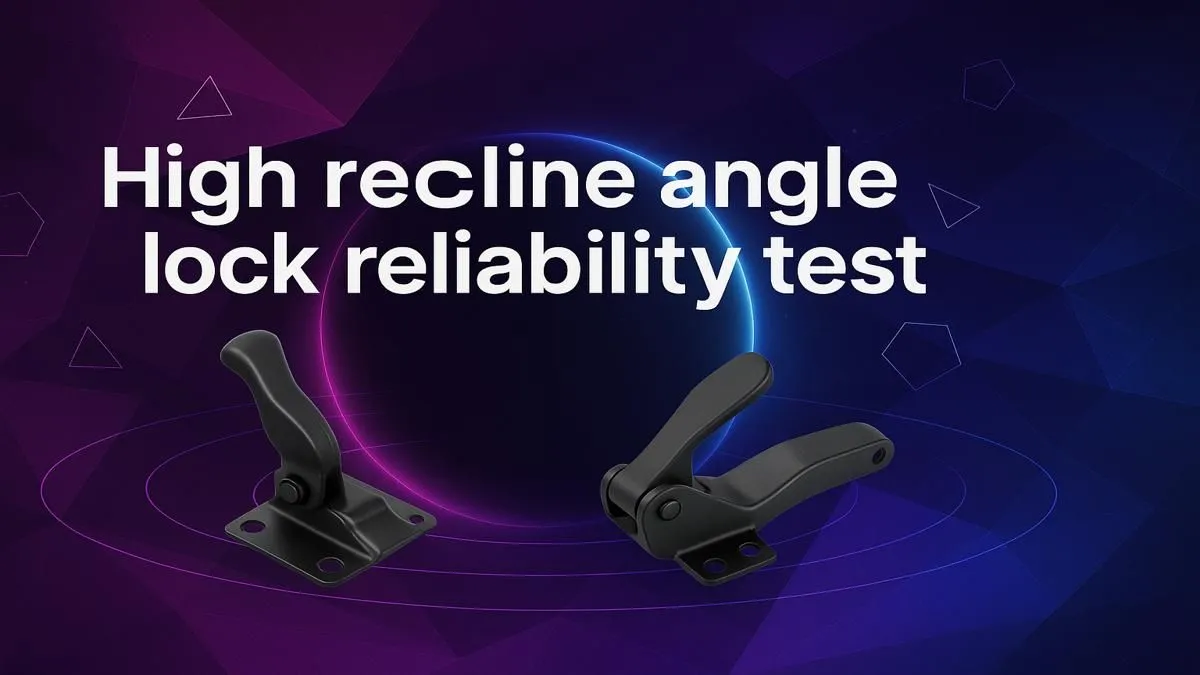
Arc A730M PCIe 4 Guide: Boost Your Data Performance
🚀 Boost your data processing with the Intel Arc A730M PCIe 4 graphics card. Learn efficiency secrets now!
Master high recline angle lock reliability tests 📊🔧. Ensure safety & performance with Evetech's proven methods. Upgrade your testing process today!

You’ve just clutched a 1v3. You lean back, exhale, and… CRACK. The fear of a failing recline lock is real. It’s the one component separating blissful comfort from a sudden, undignified meeting with the floor. That’s why we put these mechanisms to the test. A proper high recline angle lock reliability test isn't just about specs; it's about trust and safety during those long gaming sessions.
At its core, the recline lock is a safety mechanism. It’s what holds the backrest of your chair firmly in place when you lean back, whether you're relaxing at 160 degrees watching a stream or angled slightly forward in full focus mode. A failure here isn't just an inconvenience; it can be a genuine shock.
The quality of this mechanism is a critical factor we examine across all chairs, because durability should never be compromised. Even when browsing the best gaming chair deals, checking the recline system's reputation is a must for long-term satisfaction. ✨
Reading about "heavy-duty steel frames" is one thing, but how do they hold up? We conduct a thorough high recline angle lock reliability test to find out. Our analysis goes beyond the marketing points and simulates years of intense, real-world use.
Our protocol involves:
This rigorous process helps us understand the true reliability of the chair's core components.
When you test a chair, listen for a solid, metallic 'clink' when the lock engages. Any grinding, slipping, or excessive plastic-on-plastic sound is a red flag. A good mechanism feels decisive and secure.
So, does spending more guarantee a better lock? Often, yes... but the context matters.
Many excellent and reliable gaming chairs under R4000 feature standard, robust recline locks that are more than capable for the vast majority of gamers. They use proven designs that get the job done safely and effectively.
Where you often see a difference is in the premium tier. The investment in premium models over R4000 frequently gets you a multi-functional tilt-and-recline mechanism. These are typically built with more precision-engineered metal parts, offering smoother adjustments, more locking positions, and an even higher tolerance for wear and tear—ideal for heavier users or those who spend 8+ hours a day in their chair.
Ultimately, the goal is peace of mind. Knowing your chair's lock is dependable lets you focus on what's important... like winning. 🚀
Ready for a Chair You Can Trust? Don't gamble on comfort or safety. A reliable recline lock is the foundation of a great gaming throne. Explore our full range of tested gaming chairs in South Africa and find the perfect fit for your setup.
Overuse, lubrication breakdown, and manufacturing defects cause 80% of recline lock failures.
Use weight resistance testing (5-10kg) across 30-degree increments for accurate home results.
ISO 7174 sets international recliner lock standards with 50,000 cycle durability benchmarks.
Commercial chairs require monthly testing, home use needs bi-annual assessments minimum.
Digital torque meters, inclinometers, and load cells provide precise recline lock reliability metrics.
Regular lubrication, avoiding over-torquing, and using proper testing methods extends lock lifespan by 40%.
Meeting manufacturer torque specs with <2° deviation over 10,000 cycles constitutes a passing result.